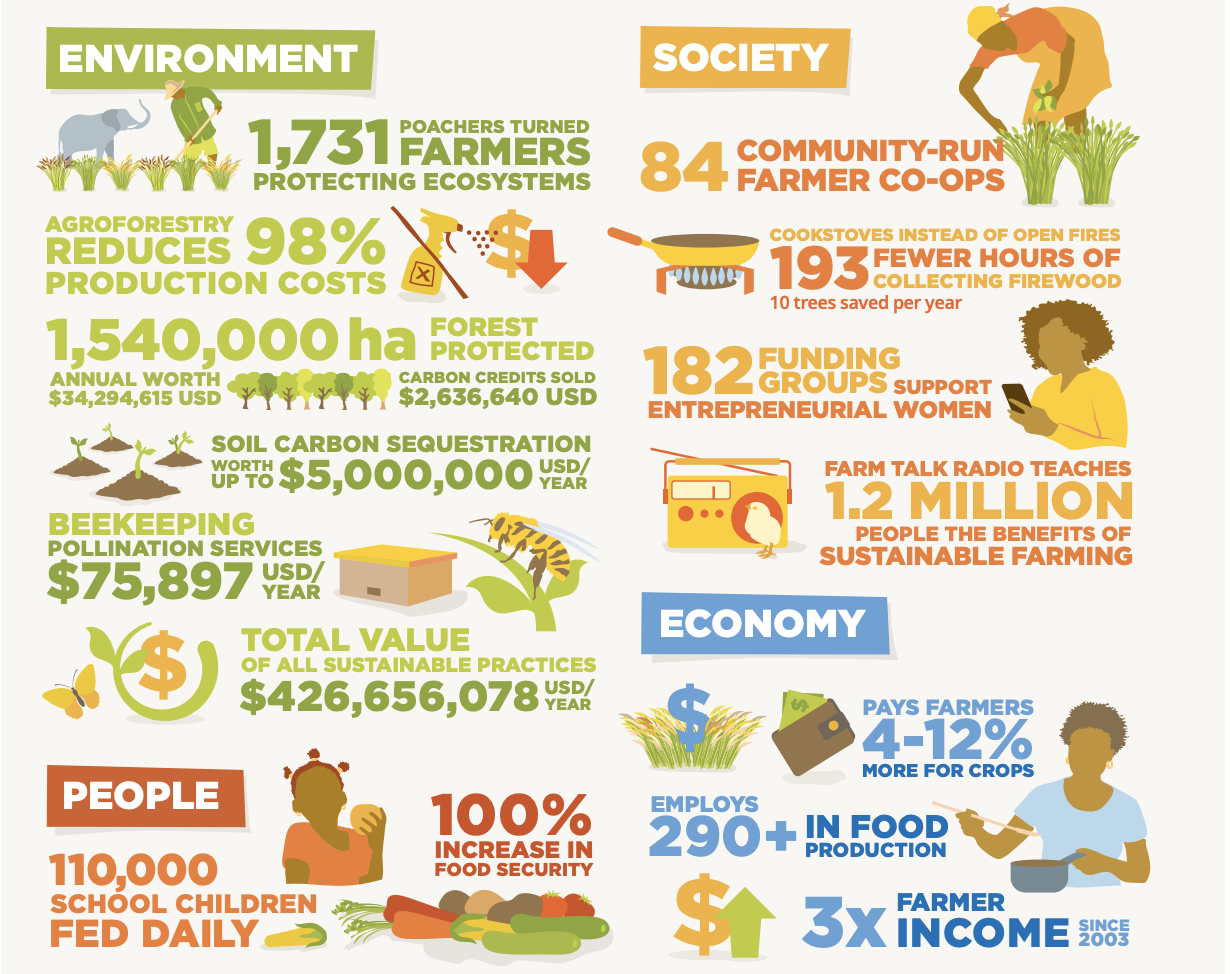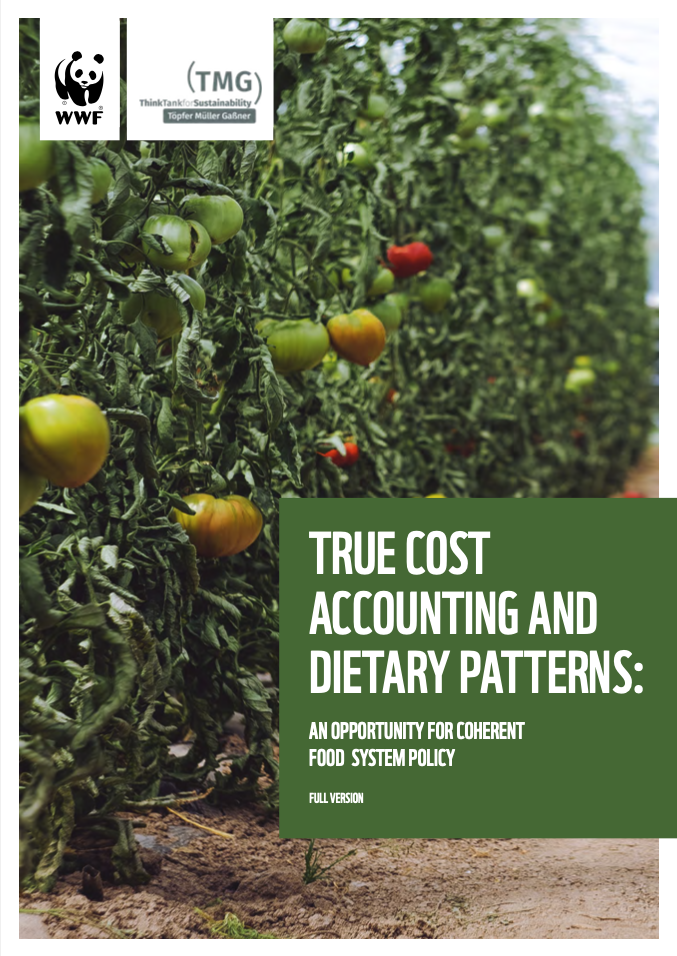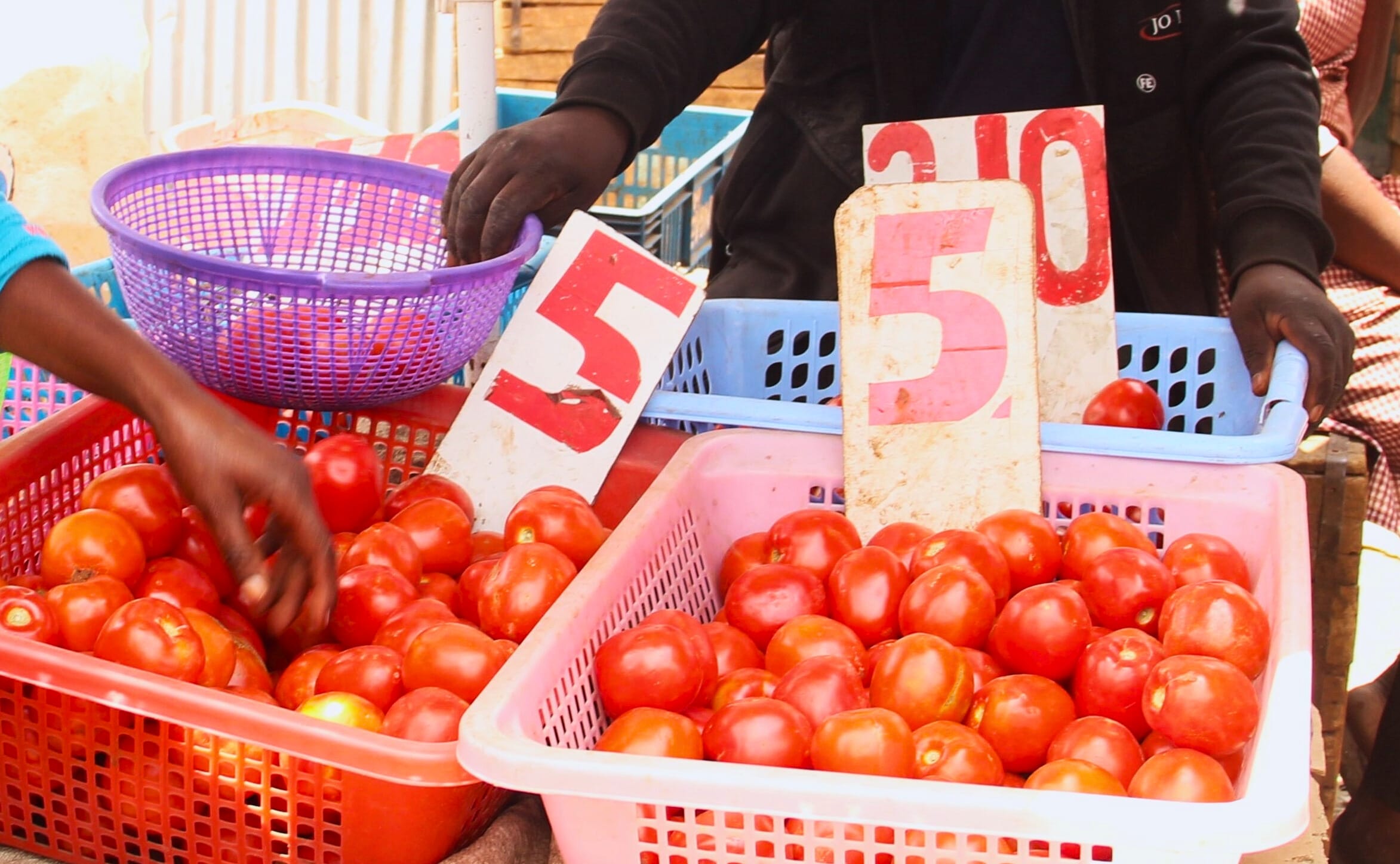What is our food worth to us?
Nutrition for Growth (N4G) Side Event explores integrated valuation tools for food systems transformation
by Louisa Nelle | 2021-12-17

The food choices we make each day are determined by an array of factors, including our economic situation, cultural background, and personal preferences. When added up, these and other individual decisions have a profound impact on how food is produced and distributed, and ultimately, on our health, livelihoods, and the natural environment.
It is estimated that today's agri-food systems account for approximately 24% of greenhouse gas releases and 70% of freshwater withdrawals. Agriculture is the primary driver of tropical deforestation and biodiversity loss, and increases the risk of future pandemics. At the same time, between 720 and 811 million people in the world faced hunger in 2020, an increase of more than 160 million in just one year. At current food prices, at least 3 billion people cannot afford a healthy diet. The COVID-19 pandemic has further revealed just how unsustainable, vulnerable and "grotesquely unjust" our food systems are.
The market value of global food is estimated to be around USD9 trillion, but external costs to the environment and society are estimated to be nearly double this figure, at USD19.8 trillion. This means that the food we purchase costs roughly a third of what it would if costs to society – such as environmental degradation or health costs – were taken into account.
While it can induce some behaviour change, simply raising the price of food is unlikely to address the underlying environmental, social and health impacts of our distorted food systems.
Getting our food systems back on track
Just how do we transform our food systems to be more sustainable and resilient while delivering healthy diets to all?
This was the hotly debated question at the Nutrition for Growth (N4G) 2021 Summit side event, Counting the True Cost: How Understanding the Real Cost of Food can Improve Nutrition for All. While True Cost Accounting (TCA) is still in its infancy, several TCA case studies presented at the session helped illustrate how TCA assessments help identify value across all four capitals: natural, human, produced, and social. For example, COMACO a social enterprise in Zambia strengthens livelihood opportunities by promoting regenerative agricultural practices, hence contributing to environmental protection. By linking farmers to multiple market opportunities, the project also contributes to higher economic returns.

TCA analysis of COMACO’s Impact. Global Alliance for the Future of Food (2021).
TMG Research and WWF launched their recently published report, True Cost Accounting and Dietary Standards, at the session. The report offers practical guidance for policy makers and other stakeholders on how to incentivise sustainable and healthy food consumption while staying within planetary boundaries.

TMG-Think Tank for Sustainability & WWF (2021). True Cost Accounting and Dietary Patterns: The Opportunity for Coherent Food System Policy. Berlin, Germany.
Carrots and sticks
Private sector representatives at the side event described how they have started to use TCA to assess the sustainability of their portfolios. Some companies also use TCA analyses to encourage their clients and business networks to invest in more sustainable products and businesses.
Many speakers concurred that incentives are much more effective than punitive measures in driving behavioural change. Discussing the application of the sugar tax, for example, it was noted that many companies simply use other sugar substitutes that can be even more harmful than plain sugar. The US-based Wholesome Wave Foundation is an an example of an incentive-based policy that has triggered positive behavioural change. The programme rewards low-income households for purchasing fresh food and vegetables at farmers markets. A recent analysis of a follow up US Farm Bill pilot that extended the incentive programme to grocery stores found an average 5% increase in fruit and vegetable purchases in comparison to stores that are not part of the programme.
Research affirms that there is an increasing spectrum of businesses that are committed to improving their sustainability portfolio. However, the primary interest is improving within-business metrics against either an industry standard or an internal standard. There are currently very few businesses that question their entire business model by examining issues such as: "if the focus is on healthy and sustainable dietary patterns should my business exist in its current scale or scope?"
Hence, argues the TMG/WWF report, it is the task of the public sector to undertake policy reforms with greater emphasis on the consumption (or demand side) of our food systems. Such a focus would seek to reduce the unintended consequences of "cheap food" by targeting our unhealthy and unsustainable diets, which are contributing to overconsumption and food waste, while also limiting access to adequate and nutritious food for all.
By allowing for integrated analyses of our food systems, TCA offers a framework for inclusive participation mechanisms and multi-stakeholder platforms such as food policy councils to overcome the limitations of food policies that are traditionally disconnected from each other.
For example, national dietary guidelines are in place for over 100 countries, but only a few consider environmental sustainability, social welfare, or right to food questions. Data and analysis gathered through TCA studies can help formulate coherent messages for diverse stakeholders and interest groups to build "alliances of change" to transform the food sector.
----------------
The event was organised under the auspices of the Future Food Together project, which is part of the International Climate Initiative (IKI) supported by Germany’s Federal Ministry for the Environment, Nature and Conservation and Nuclear Safety (BMU).
-----------------
Edited by Wangu Mwangi
 Land GovernanceDec 18, 2025
Land GovernanceDec 18, 2025Land tenure, women’s land rights, and resilience: Reflections from CRIC23 toward UNCCD COP17
Our experts discuss what the exchanges at CRIC23 highlighted and revealed about the role of secure and gender-equitable land tenure in the UNCCD's work ahead of the 2026 triple COP year.
Frederike Klümper, Washe Kazungu
 Urban Food FuturesDec 09, 2025
Urban Food FuturesDec 09, 2025The story of Mukuru's Urban Nutrition Hub
In Mukuru informal settlement, a safe haven for women has grown into the Urban Nutrition Hub, a multi-purpose space for nutrition education, training, and community development, demonstrating the potential of grassroots community-owned innovation..
Serah Kiragu-Wissler
 Urban Food FuturesSep 29, 2025
Urban Food FuturesSep 29, 2025Cheaper food, higher costs: The paradox of Nairobi’s food systems
What are the hidden costs of foods sold in Nairobi's informal markets, and who must bear them? We discuss how the city could build food systems that are both affordable and fair—for consumers and the people who feed them.
Christian Sonntag, Emmanuel Atamba, Lumi Youm

